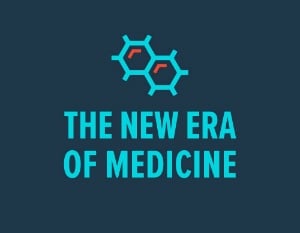Sickle cell disease (SCD) is the most common inherited blood disorder in the United States, afflicting nearly 100,000 Americans. Patients with SCD have sickle-shaped red blood cells, which have trouble moving through the blood vessels and thus cause blockages or slow blood flow and oxygen to parts of the body. SCD is life-threatening, due to potential complications from blocked blood vessels, which can include stroke, difficulty breathing, pulmonary hypertension and other organ damage.
As SCD impacts fewer than 200,000 patients it is considered a rare disease. However, SCD disproportionately affects African Americans, with the disease occurring in nearly 1 in every 365 Black or African American births and 1 in 13 are born with the sickle cell trait. Additionally, the American health system loses nearly $1 billion each year in direct medical costs associated with SCD, and hospitalizations due to its related complications total $488 million annually.
![MID SCD Chart[1]](/-/media/Project/PhRMA/PhRMA-Org/HubspotImages/hubfs/464546/MID-SCD-Chart-1.jpg)
The biopharmaceutical industry is working to alleviate some of the costs associated with the condition and improve the quality of life for patients with SCD. According to a new report, 17 new treatments are in development for the disease, all of which are in clinical trials or awaiting U.S. Food and Drug Administration (FDA) review. These innovative treatments are exploring new ways to use established medicines and cutting-edge technologies such as RNA interference, gene-edited stem cell therapy and gene therapy. Examples of these exciting approaches include:
- An investigational potential one-time gene therapy to address the underlying genetic cause SCD. The therapy uses stem cells from the patient and inserts a corrected gene using a lentivirus – a retrovirus that causes chronic and deadly diseases – before returning the cells to the patient.
- A gene-edited cell therapy that could potentially be a one-time treatment for sickle cell disease, uses zinc finger nucleases (ZFNs), which consist of a protein with a DNA-cutting enzyme, to modify a patient’s own hematopoietic stem cells to produce normal-shaped red blood cells using fetal hemoglobin.
- An ex vivo gene-edited cell therapy uses a new technology called CRISPR (clustered regularly interspaced short palindromic repeats) to replace stem cells with those engineered to produce high levels of fetal hemoglobin in red blood cells, replacing the damaged hemoglobin.
- An anti-P-selectin monoclonal antibody for the prevention of vaso-occlusive crises (VOCs) in patients with SCD. The medicine binds to the P-selectin protein, a major driver of the vaso-occlusive process, on the surface of platelets and endothelial cells in the blood vessels. It inhibits interactions between endothelial cells, platelets, red blood cells, sickled red blood cells and leukocytes, preventing the cells from being able to bind to P-selectin.
The 17 medicines in development for SCD represent an enhanced understanding of the underlying mechanisms of genetic disorders, pointing to an increasingly promising future for patients with SCD and other genetic diseases. To explore one biopharmaceutical researcher's story working on SCD, click here. To learn more about the medicines in development, view the full report here.



![MID SCD Chart[1]](/-/media/Project/PhRMA/PhRMA-Org/HubspotImages/hubfs/464546/MID-SCD-Chart-1.jpg)
